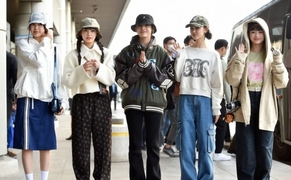 |
| Lawmakers from the People Power Party (PPP) protest during a parliamentary audit of the Legislation and Judiciary Committee at the National Assembly in Yeouido, Seoul, on October 16, objecting to Chairwoman Choo Mi-ae’s handling of the session. / Source: Yonhap News |
South Korea is facing an unprecedented proliferation of investigative bodies, with overlapping jurisdictions leading to chaos and political controversy. Critics say the government’s drive for “prosecution reform” has instead created a self-consuming system where investigative agencies are now turning on one another.
Justice Minister Jung Sung-ho on October 24 ordered a permanent special prosecutor to investigate allegations of external pressure on the “Coupang probe” and the loss of official seals in a separate case. It marks the first time that a justice minister has ever activated the permanent special prosecutor system. The ministry explained that internal inspections by the prosecution alone would not be enough to dispel suspicions of favoritism.
As a result, South Korea now has an unprecedented web of investigative entities — the permanent special prosecutor, three temporary special prosecutors (investigating the insurrection, Kim Kun-hee, and Marine death cases), the prosecution, the police, and the Corruption Investigation Office for High-ranking Officials (CIO) — all operating simultaneously.
The Democratic Party, which has governed under both the Moon Jae-in and Lee Jae-myung administrations, long distrusted the prosecution. That mistrust led to the creation of the CIO, followed by multiple special prosecutors and, most recently, a permanent special prosecutor system.
Yet problems of “targeted investigations” and “cover-ups” have also emerged within these very institutions. Legal experts warn that these bodies lack effective oversight mechanisms, making internal accountability even weaker than that of the prosecution they were meant to replace. The situation has now escalated to the point where investigative bodies are literally investigating one another.
In one example, the new permanent special prosecutor is probing the prosecution over alleged interference in the Coupang case. Meanwhile, the prosecution is investigating the Kim Kun-hee special counsel, Min Jung-gi, over a complaint tied to the death of a Yangpyeong County official and alleged insider trading using undisclosed information. The National Human Rights Commission has also launched an inquiry into Min’s conduct.
At the same time, another special prosecutor team — led by Lee Myung-hyun in the case of the late Marine Chae Sang-byeong — is investigating CIO Director Oh Dong-woon and several senior officials for alleged dereliction of duty, accusing them of covering up perjury by a senior CIO prosecutor.
Despite the spiraling confusion, the People Power Party (PPP), the main opposition party, continues to criticize the government’s handling of investigative authority, while the ruling camp maintains that the CIO should be strengthened. During a recent parliamentary audit, Oh argued that the CIO’s authority should extend to special prosecutors and called for expanding its right to indict, saying “the power to investigate and prosecute should be unified.”
Members of the legal community, however, warn that the government is concentrating power in agencies aligned with its political interests. “The administration claims to be separating investigation and prosecution,” said a former deputy prosecutor now in private practice. “Yet it’s handing even greater power to bodies like the CIO and the special prosecutors, which now hold both functions.”
He added, “The three special prosecutors have been expanding their mandates by pursuing any related crimes uncovered during their investigations — precisely the kind of ‘parallel investigations’ that the government once criticized the prosecution for. But now, no one seems to be objecting.”
Most Read
-
1
-
2
-
3
-
4
-
5
-
6
-
7





















